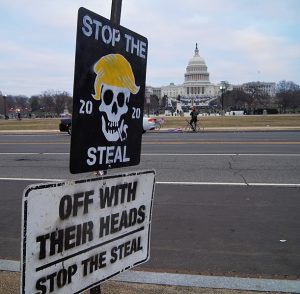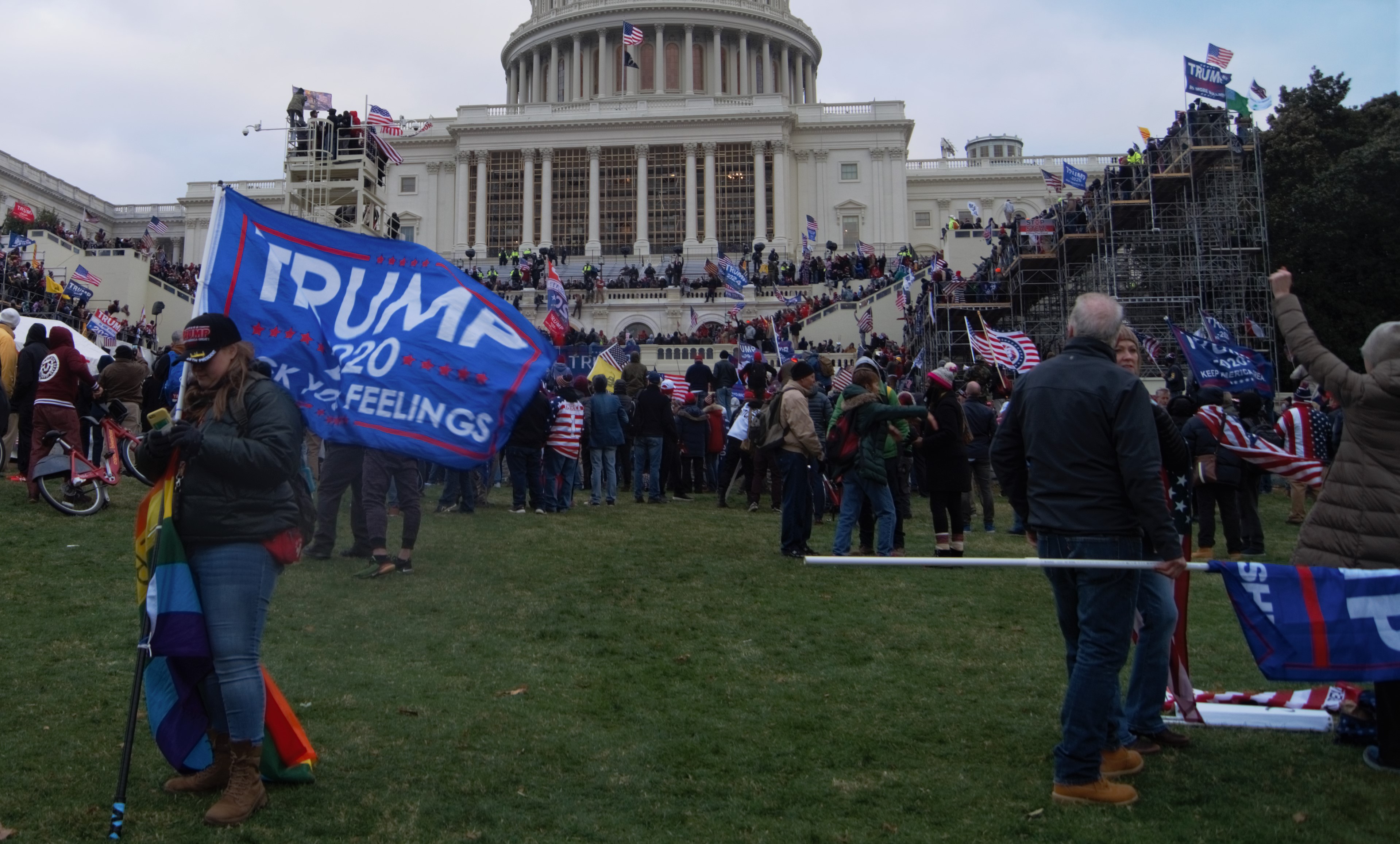It’s tempting to hand police increasing surveillance powers after the attack on the U.S. Capitol, but the unintended consequences could hurt progressive causes.
Last week’s assault on the Capitol by Trump supporters hoping to stop the certification of Electoral College vote was, to many, truly shocking. Images filtered out of the melee: of a man dressed in animal skins at the head of an empty Senate chamber, of “thin blue line” flag-wavers clobbering police, of people scaling a wall to invade the seat of American government, and elected lawmakers taking shelter. As the chaos subsided, mixed among the calls for the President’s removal were those looking to make sure this never happens again. However, in the effort to prevent a repeat performance, there are lines that shouldn’t be crossed. For one, increasing surveillance is not the answer to this problem.
We’ve seen this movie before. We know the plot.
The United States has been increasing surveillance since the 9/11 terrorist attacks birthed the PATRIOT Act. These powers, granted on an “emergency” basis to the Bush administration, ballooned the government’s ability to spy on American citizens in the name of preventing terror. Although there’s never been another comparable terror attack on American soil, we’re apparently still having an emergency two decades later. The same Republicans who protested those powers in the hands of President Obama regularly team up with the Democrats who consider President Trump a danger to the country in order to re-up the various portions of the Act as they face possible sundown every couple years. And is any of it necessary, if the government clearly knew the attack was coming months before the first plane was hijacked?
Even before 9/11 came COINTELPRO (a portmanteau of “Counter Intelligence Program”), J. Edgar Hoover’s 1950s-and-onward vehicle for rooting out activism, largely in the African-American community. Hoover’s policies included engaging in psychological warfare, increasing surveillance of prominent protesters, infiltrating groups like the Black Panthers and the Southern Christian Leadership Conference, and assassination of leaders such as Fred Hampton.

As citizens of a “free society,” we should really think about what that means. Modern technology has made increasing surveillance seem inevitable. Smart phones trade convenience for the possibility of constantly tracking our whereabouts, which law enforcement may not need a warrant to obtain. Amazon encouraged us years ago to aim little cameras at our beds. Alexa and Siri are always listening. Printouts carry small tracking dots that encode information about where and when they were made. Facial recognition programs follow us from Facebook to the grocery store to the airport to political protests. Police use the results of “ancestry” DNA tests to find suspects.
We are awash in being watched. Calls for increasing surveillance to catch the Capitol rioters may not be necessary when they post livestreams of their felonious shenanigans on social media. The problem last Wednesday was not a lack of intelligence gathering. The events had been hyped for weeks, openly. Rather, it was an explosive combination of toxic misinformation, some police officers standing down instead of doing their job (whether due to sympathy for the movement or tragically short staffing), and an epic string of outright lies capped by a propaganda-rich speech from a President who actively encouraged mayhem. We can’t fix this by embracing an even more intrusive State.
What increasing surveillance would do, however, is come down hard on the people and causes that progressives care about the most. Want more government crackdowns on protesters like the Standing Rock water protectors, Black Lives Matter activists working towards ending systemic racism, and those trying to draw attention to the climate crisis? Because that’s what we would get.
We just spent an entire summer asking the Powers That Be to defund the police, spend that money on more appropriate solutions, and send law enforcement out only when they’re really needed. Let’s not roll back that message by surrendering even more of our scarce privacy to a power-hungry surveillance state.
Related: Who Can Be Trusted to Do Police Work?


Join the conversation!